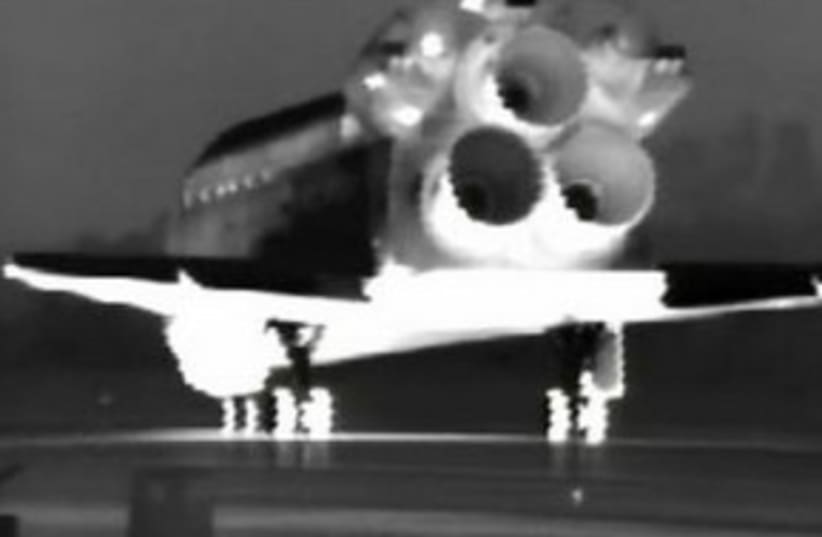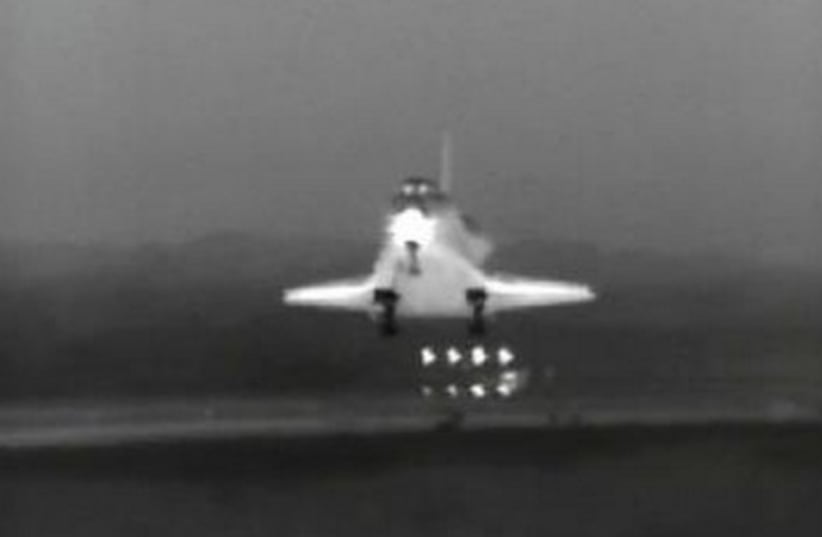
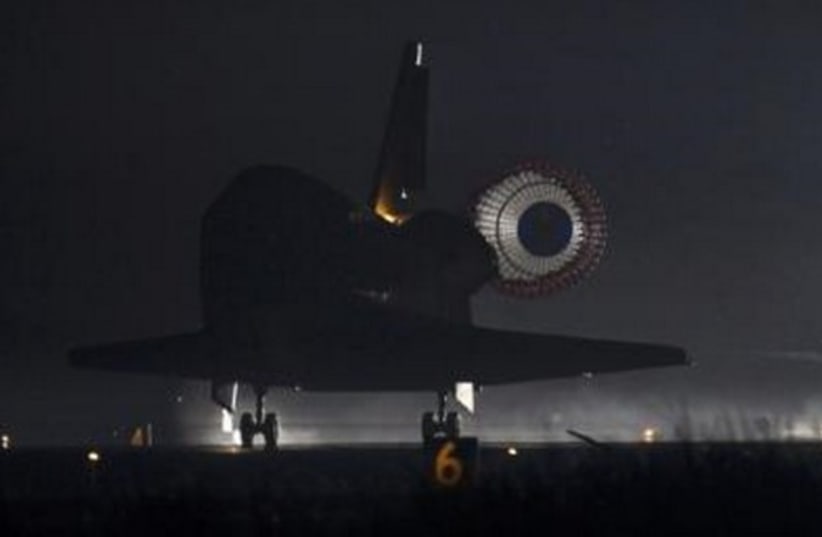
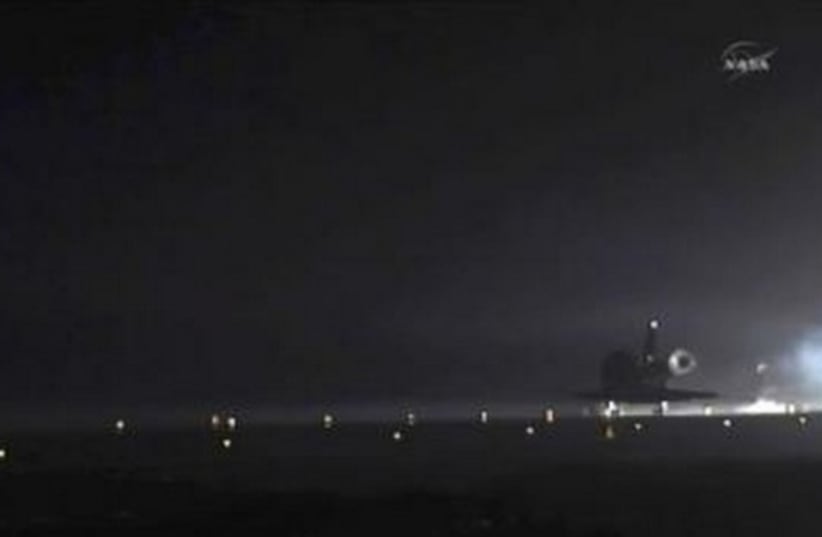
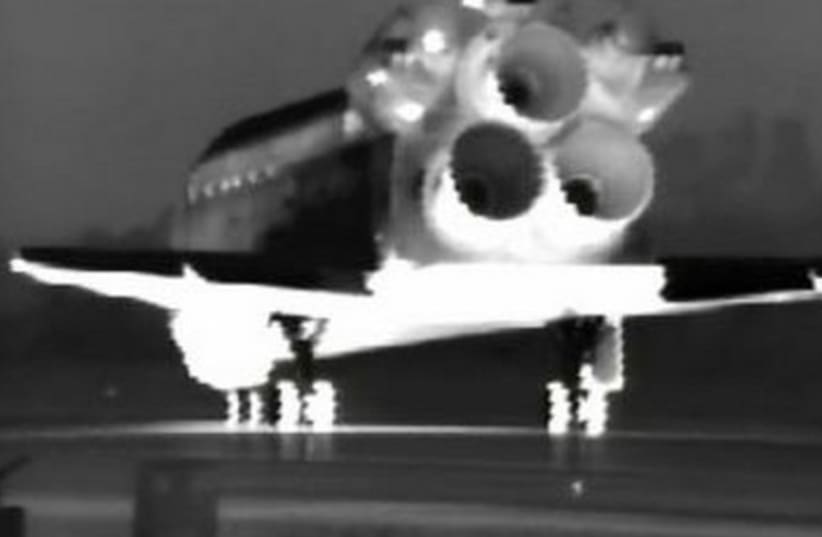
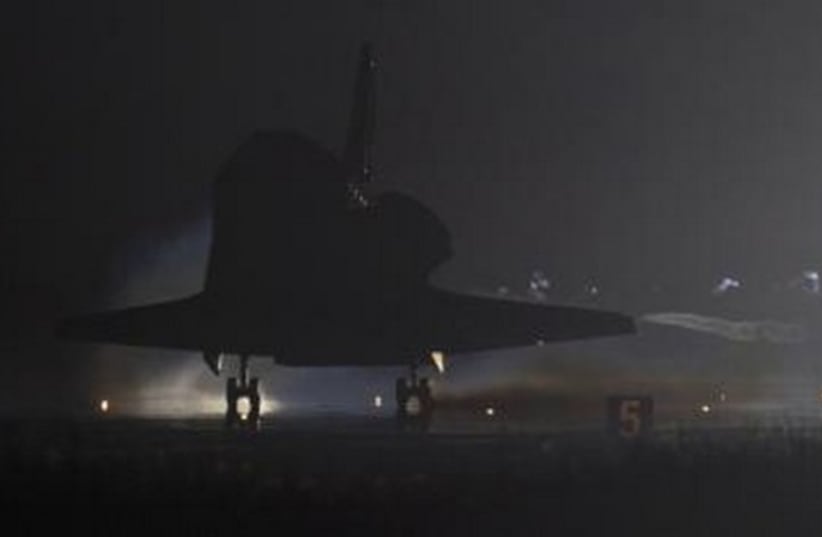
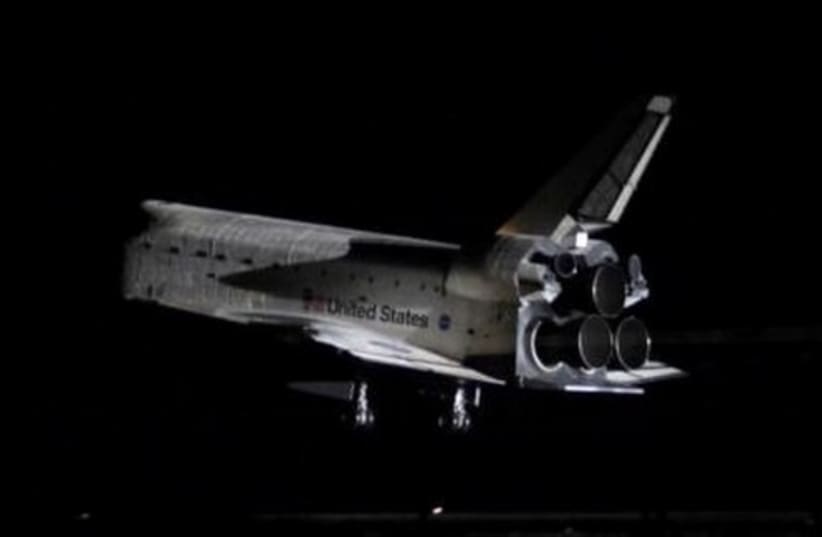

Sailing through night skies, the shuttle and its six-man crew glided toward the Kennedy Space Center, circling high overhead to burn off speed and setting off a pair of sonic booms, heralding the ship's homecoming.RELATED:‘Endeavour’ to run experiment that crashed with Ilan RamonShuttle program's final spacewalkGallery: Spacewalkers step out for third missionCommander Scott Kelly, a four-time shuttle veteran, gently eased the 100-tonne spaceship onto the runway, touching down at 2:35 a.m. EDT (0635 GMT) to complete Endeavour's 25th and final flight.Nearby, sister ship Atlantis reached the launch pad, where it will be prepared for NASA's final planned shuttle mission, a supply run to the space station scheduled for liftoff on July 8."It's going to be a long time until you see a vehicle roll out to the pad that looks as beautiful as that," said Atlantis astronaut Rex Walheim, who was at the Kennedy Space Center along with his three crew mates to watch NASA's final shuttle roll-out."An airplane on the side of a rocket. It's absolutely stunning," he said.The United States is retiring its three-ship fleet due to high operating costs and to free up funds to develop new spacecraft that can travel beyond the space station's 220-mile-high (346-km-high) orbit.
The primary goal of Endeavour's flight, the 134th in shuttle program history, was to deliver the $2 billion Alpha Magnetic Spectrometer particle detector and a pallet of spare parts to the station.The crew also made four spacewalks to complete assembly of the US side of the $100 billion outpost, a project of 16 nations that has been under construction since 1998.It will be at least four years before NASA astronauts can fly out of the United States again. Until new ships are ready, Russia will transport crews to the station at a cost of more than $50 million per person."Times of transition are very difficult," said Atlantis astronaut Sandy Magnus. "I think in the end we'll end up with a good plan and we'll have a solid future ahead of us."In related news, Israel Radio reported that the Endeavour returned to Earth with an Israeli experiment which looks into the sources of life and why people age.The experiment is under the guidance of Dr. Eran Schenker of the Fisher Institute for Strategic Research on space.Researchers reportedly sent cultures of mammalian cells on the space shuttle and will compare the rate of decay of the cells in space with the rate of decay on Earth.A previous experiment conducted during the Endeavour mission in mid-May involved a test on adult stem cells to study the influences of weightlessness on bone cells and resultant osteoporosis, which was to have been performed by Israeli astronaut Col. Ilan Ramon on the ill-fated space shuttle Columbia in 2003.